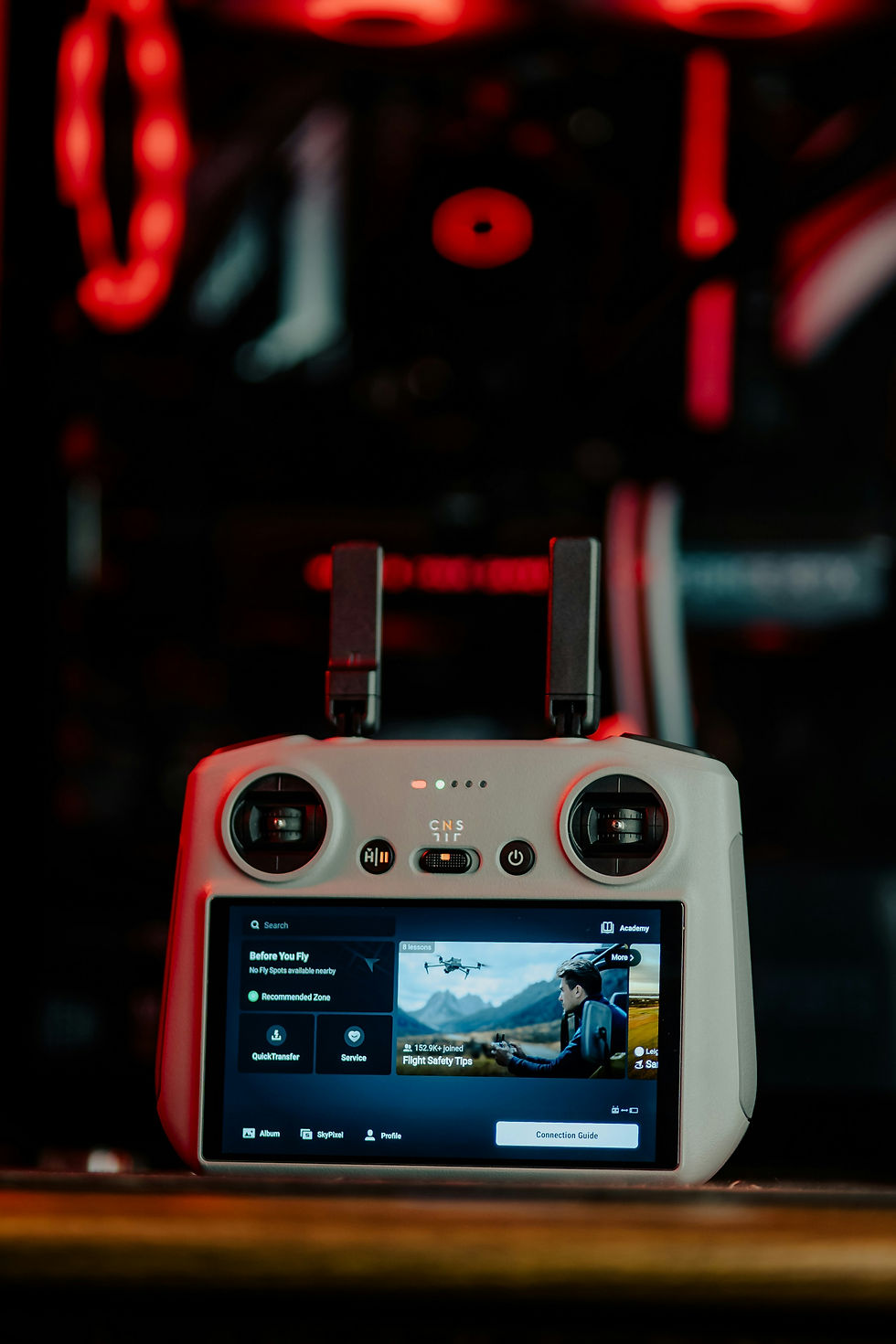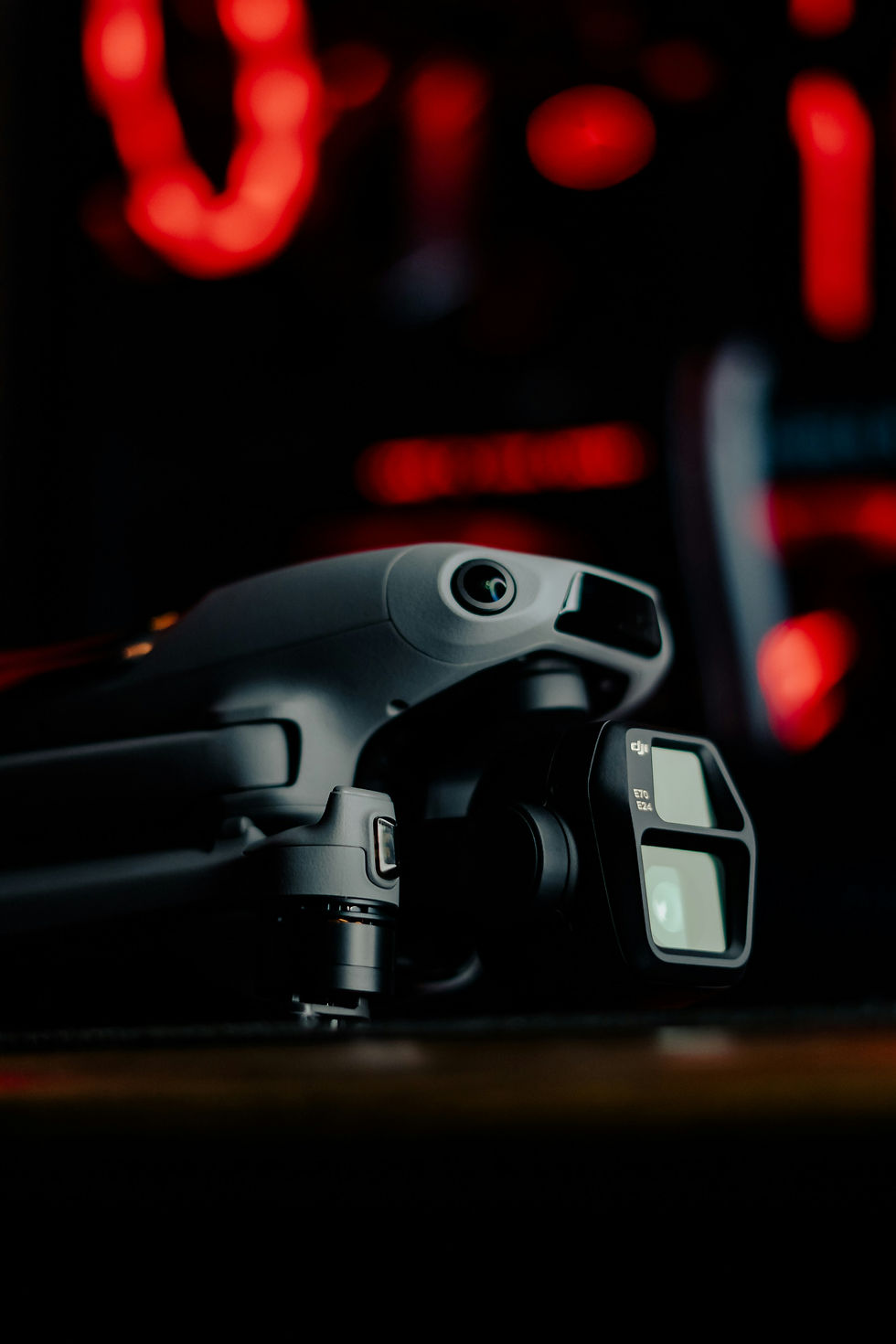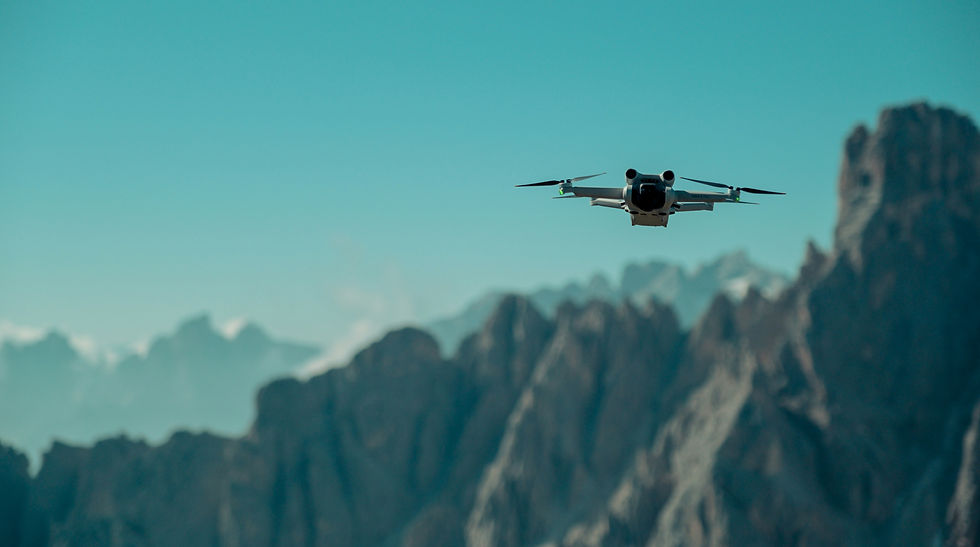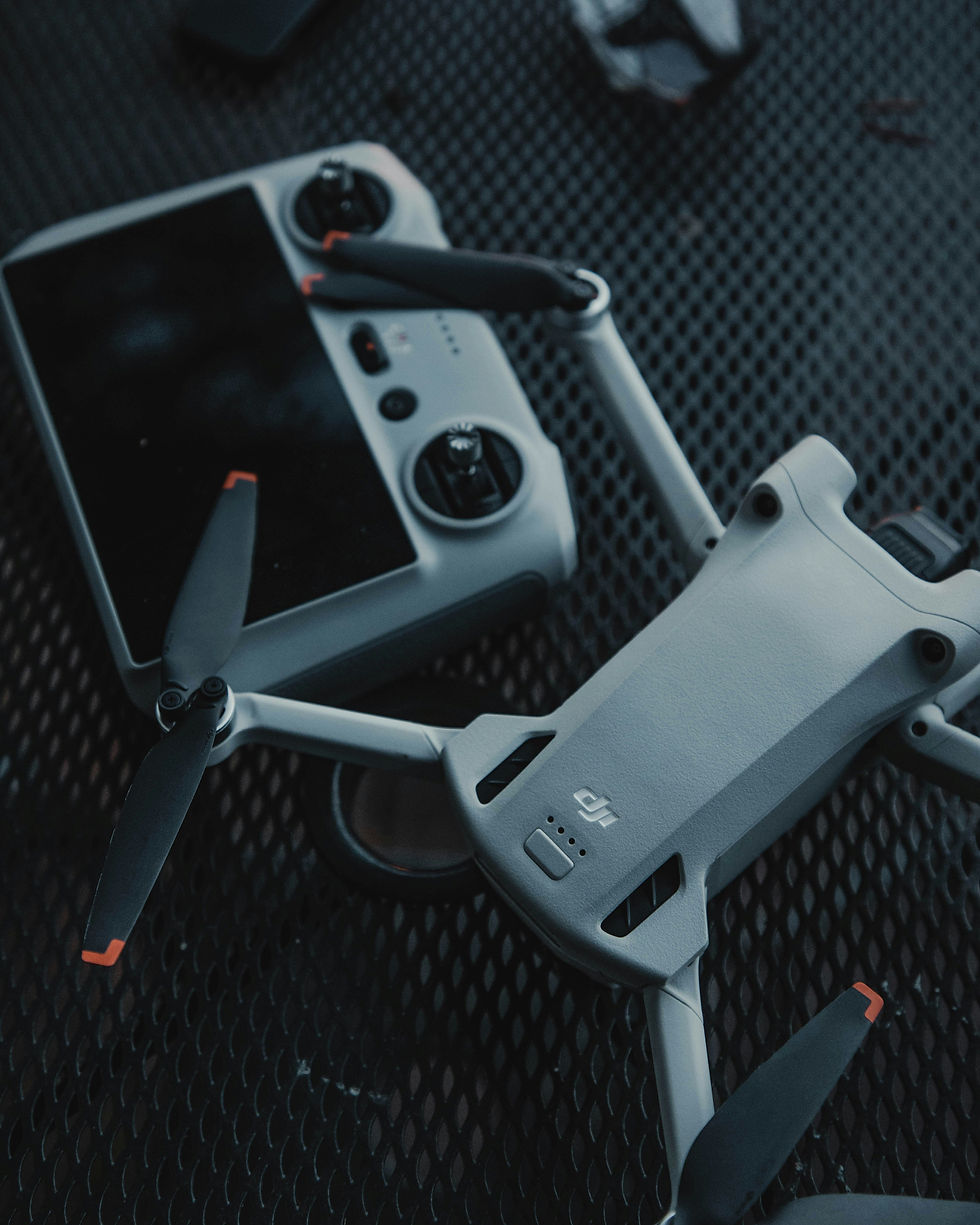How a U.S. DJI UK Ban Could Impact the Drone & Camera Market
- Instinctive Media

- Aug 18, 2025
- 4 min read
Updated: Aug 29, 2025

DJI currently commands around 70% of the global civilian drone market, cementing its position as a dominant force in prosumer and consumer drones. In the U.S., DJI's market share among commercial drone sales may be as high as 85%.
With the United States edging closer to restricting DJI products on national security grounds, the ramifications may extend well beyond American borders. For the UK's filmmakers, photographers, hobbyists, and commercial operators, the pressing question is: how could a U.S. DJI UK ban reshape the drone and camera market?
This article explores the context, potential impacts, and what UK professionals and enthusiasts should keep a close eye on.
U.S. Bans on Chinese Drone and Camera Companies: The Context
In recent years, the U.S. has substantially tightened restrictions on Chinese technology firms. DJI, maker of the Phantom, Mavic, and Inspire drones, is at the centre of this scrutiny. Lawmakers argue these drones could be subject to Chinese data laws, raising privacy and national security concerns.
DJI and Autel Robotics are both under a Section 232 national security investigation by the U.S. Commerce Department, which could result in tariffs, quotas, or import bans.
The FY2025 National Defense Authorization Act mandates a formal security audit of DJI and Autel by the end of 2025. Failure to pass would lead the FCC to block their products from U.S. communication networks.
DJI's U.S. market share is reported to be as high as 85 percent, illustrating the depth of reliance on their products.
The U.S. has also considered broader restrictions on Chinese-made drones due to national security risks, including spying concerns.

How a U.S. DJI UK Ban Could Ripple into the Market
The UK has not enacted any bans on DJI. Government departments and police forces, including
the Ministry of Defence, continue to purchase DJI drones, such as the Matrice 300 RTK, despite U.S. federal restrictions.

Nonetheless, U.S. policy often influences allied nations through:
Regulatory Pressure: The UK's 2023 Procurement Act includes a Debarment List for companies seen as security risks. This list currently excludes drones, but may expand.
Market Shifts: If DJI faces reduced U.S. demand due to tariffs or bans, stock could flood Europe, lowering prices in the short term, or the firm may cut R&D budgets, potentially slowing new releases.
Competitor Growth: Brands such as Skydio (USA), Parrot (France), and Sony (Japan) already have a presence in the UK and could gain ground if DJI's market advantage weakens.
Considering that the U.S. probe affects Chinese-made suppliers broadly, other companies like Autel and Insta360 could also emerge as collateral, further complicating supply alternatives.
DJI Market Share and the Gap in the UK Drone Industry
DJI's dominance means any disruption leaves a substantial gap in the market:
Brand | Origin | Strengths | Risks or Limitations |
DJI | China | Market-leading performance and pricing | May face bans or restrictions |
Autel Robotics | China | Viable alternative | Also targeted by sanctions |
Insta360 | China | Innovative 360 capture (Antigravity A1) | Vulnerable to same trade restrictions |
Skydio | USA | Strong autonomy | Currently enterprise only, expensive |
Parrot | France | Established in enterprise and defence | Limited consumer models |
Sony | Japan | High-end cinematography via Airpeak S1 | Very high cost |
Without DJI, consumers may face higher prices and fewer choices, at least in the short term. If bans expand to other Chinese brands, that choice could shrink further.

DJI vs Insta360: Drones and Cameras Converge
A growing trend is the convergence of drone and camera tech:
DJI launched the Osmo 360, an 8K 360 action camera, in early 2025.
Insta360 released the Antigravity A1, the world's first 360 aerial drone platform.
Sony integrated its Alpha camera systems into its Airpeak drone for professional filmmakers.
While these hybrid products expand creative possibilities, companies like Insta360, being Chinese, may be vulnerable under the same trade restrictions as DJI.
Implications for UK Professionals and Hobbyists
For Professionals
DJI's Inspire 3 and Mavic series remain the default choice due to their performance and price.
Some production houses are already diversifying with Skydio or Parrot as insurance against future restrictions.
Equipment rental services may boost their non-DJI offerings in anticipation of shifting demand.
For Hobbyists
In the short term, prices may fall if excess DJI stock is redirected to Europe.
New 360 tools like the Antigravity A1 provide creative opportunities, though availability may hinge on trade policy.
Interest in DIY and open-source drones may rise if ready-to-fly options become scarce.
For Regulators
The UK may favour data security requirements over blanket bans.
Core drone regulation, like flight rules, registration, and pilot competency, will continue to shape the operating landscape.
Conclusion

The U.S. clampdown on DJI and other Chinese tech firms, via the Section 232 investigation and NDAA mandates, could reshape the global drone and camera market. While DJI products remain accessible in the UK today, risks are mounting and industry dynamics may shift.
UK users, both professionals and hobbyists, should stay informed, explore alternatives, and prepare for a swiftly evolving market. Adaptability will be key: today's leader may not remain tomorrow's best choice.
We would love to hear your view:
If a U.S. DJI UK ban became reality, would you switch brands, or stay with DJI while it is still available?
Share your thoughts and experiences below.
Discussion Questions
If DJI became restricted in the UK, which alternative brands would you trust and why?
Should the UK mirror the U.S. in restricting Chinese tech, or pursue its own path?
How might hybrid products like Insta360's Antigravity A1 or DJI's Osmo 360 reshape the content you create?
FAQ Section
Q1: Is DJI banned in the UK?
No. As of mid 2025, DJI drones remain legal to buy and use in the UK. Both consumers and government agencies continue to operate them, though future restrictions are possible.
Q2: If DJI is restricted in the U.S., might that lower prices in the UK?
Short term, yes. It is possible that redirected inventory could reduce prices. However, if restrictions squeeze DJI's R&D budget, future products could become more expensive or arrive slower.
Q3: Which drone brands would be viable alternatives to DJI in the UK?
Viable non-Chinese alternatives include Skydio (USA), Parrot (France), and Sony (Japan). However, if trade restrictions extend to other Chinese brands, options like Autel and Insta360 may also be limited.



Comments